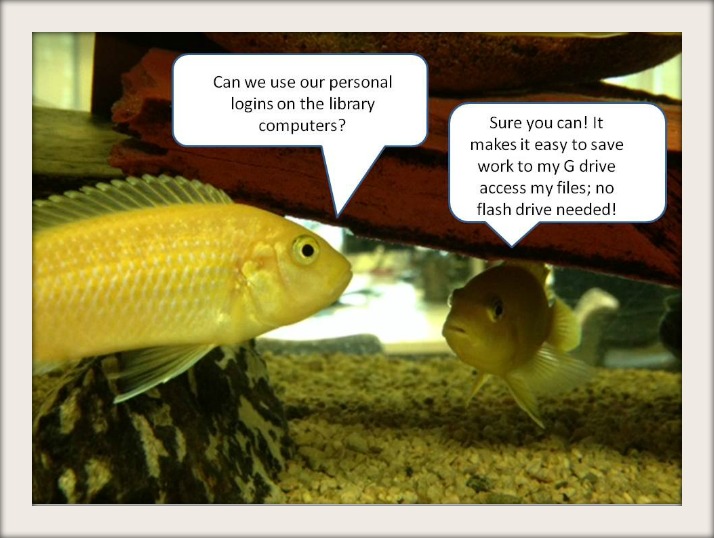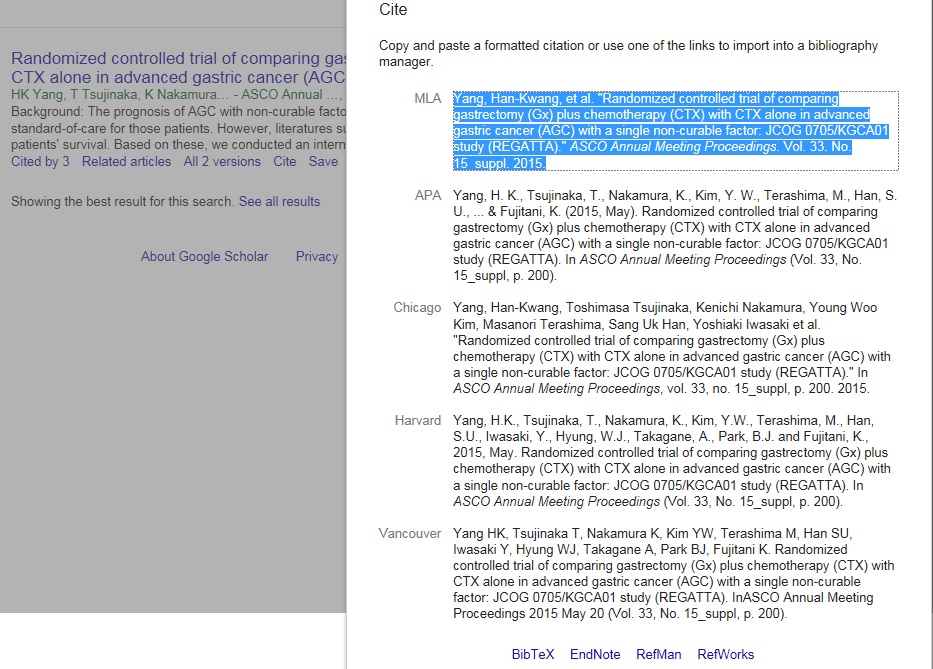
While working at on our library’s computers, it’s a good idea to login with your personal MSK login credentials. That way, you can access and save files in your G drive.
Just remember there are other fish in the sea and log off when you leave!
Posts are written by library staff and reflect their personal opinions not necessarily those of MSK.
Google Scholar has become many peoples’ go-to search interface for locating research articles of interest to them. The ability to “Cite” the retrieved search results is a great option, especially since it includes the functionality to directly export the Google Scholar citation record to a citation manager like Endnote. Unfortunately, the data provided in the Google Scholar citation is not always as high in quality or as complete as the corresponding citation record retrieved from PubMed or via another commercially-produced literature database.


Figure 1: Directly exporting citation information to Endnote (Click on “Cite” > Endnote > Open)
Once the Google Scholar citation has been transferred to Endnote, it can be easily upgraded using Endnote’s own built-in search functionality. By going to References > Find Reference Updates, Endnote will run an online search for the citation. It first searches PubMed and, if the citation is not found there, it tries Web of Science and CrossRef. Continue reading
Jenna Wortham’s piece from the NY Times Magazine, How an Archive of the Internet Could Change History, is a smart discussion of the importance of primary sources and the rare opportunity that preservation of today’s social media could provide historians in the future. Consider this;
“The internet is pushing us — in good ways and in bad — to realize that the official version of events shouldn’t always be trusted or accepted without question. And historians are constantly updating the record by looking for primary sources that were overlooked in earlier eras, often from marginalized figures. These days, such omissions will still happen, but we can catch them faster. Oversights that would have taken decades to correct are now resolved in weeks, even hours. We now get a kaleidoscopic view of events as they unfold, often in real time, on our screens and devices. History is not neutral or synonymous with truth, but the internet affords us a newfound vantage on the totality of passing time — the profound implications of which we are just now beginning to grasp.”
A hat tip to @SLA-NewYork for sharing this article.
PubMed is 20! The news came via a post in NLM’s Technical Bulletin which discusses recent enhancements to the database we use so much. Continue reading